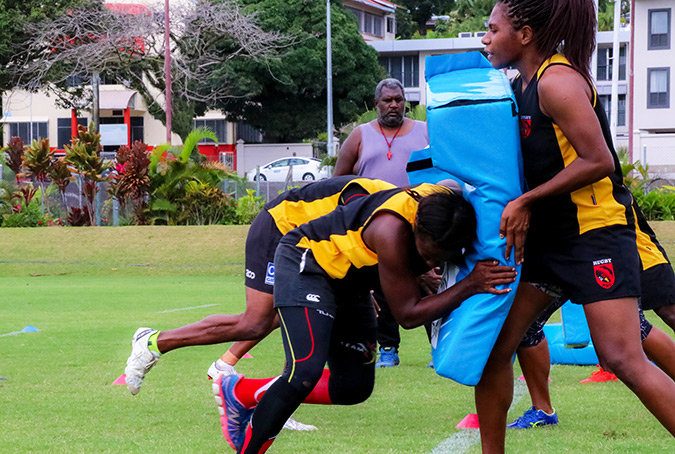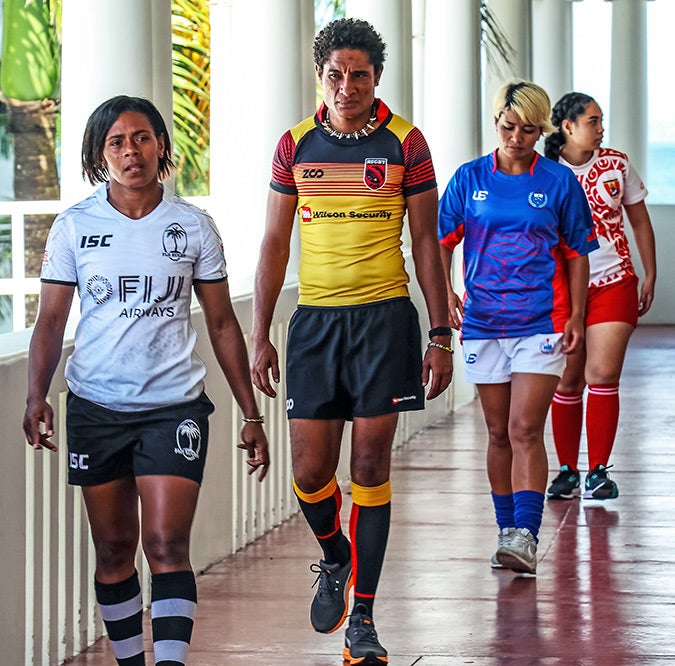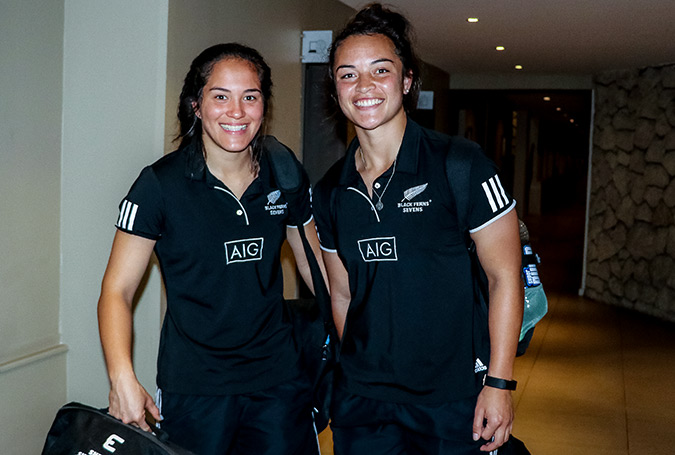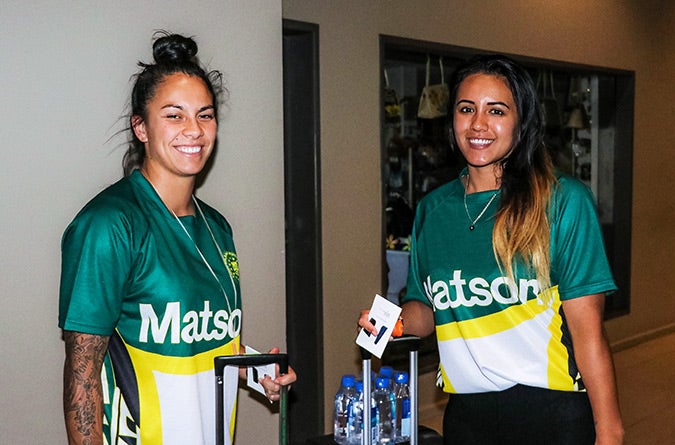An Equal Playing Field for Women and Men a Priority for Oceania 7s
Date:

Suva, Fiji — A record number of women players at this year’s Oceania Rugby Sevens Championship reflects a global movement to achieve more equal participation of women and men in rugby.

“We’re getting impressive results from the investments by Oceania Rugby and World Rugby to grow women’s rugby in the region,” said Oceania Rugby President Richard Sapias.
“This is reflected in the increased number of women’s teams participating in the Oceania Sevens, and in recent changes to our strategic planning and partnerships such as with UN Women as we work together towards equality on the field,” said Mr Sapias.

To encourage more equal participation of women and girls in rugby, Oceania Rugby has started from the top to be the catalyst for change in the region. In 2016 the Membership approved the introduction of two new independent appointed board positions, both positions are currently filled by Pacific Island Women, Cathy Wong (Fiji) Women’s Director Oceania Rugby and Aloma Johannsson (Tonga) Independent Director Oceania Rugby both women are integral to making key decisions for regional rugby; an equal opportunity approach to recruitment to achieve gender equality within the workforce from referees to managers, and record participation in its Get into Rugby (GIR) program in Fiji.

Another first is having the women’s Championship Final as the finale game at the 2017 Oceania Rugby Sevens Championship, being held at the ANZ Stadium in Suva, Fiji, from 10-11 November.
“Children and families are also being encouraged to come enjoy rugby, too, with family-friendly ticket prices to watch the full competition,” Mr Sapias said.
Nicolas Burniat, UN Women’s Deputy Representative for the Fiji Multi-Country Office (MCO) that works across 14 Pacific Island countries, said the Oceania Sevens is a great example of the commitment by Oceania Rugby to change and to encourage more equal participation of women and girls in all aspects of the sport’s administration and competitions.

“UN Women, as the global champion for gender equality and the empowerment of women and girls, is proud to work together with Oceania Rugby toward an equal playing field,” said Mr Burniat of UN Women, which recently signed a Memorandum of Understanding with Oceania Rugby to embed this commitment.
“By supporting more women and girls to play rugby and other sports at an equal level with men, we can encourage social change by demonstrating there is no limit to what women and girls can do,” he said.
Media Contacts:
Sarah Walker
Oceania Rugby
Ph: +61 418 678 548
Email: [ Click to reveal ]
Jacqui Berrell
Communications and Media Specialist UN Women MCO Fiji
Ph: +679 330 1178 ext 125
Email: [ Click to reveal ]
BACKGROUND
Oceania Rugby: Oceania Rugby is a regional body of World Rugby with 16-member unions. The Member Unions of Oceania Rugby are: American Samoa, Australia, Cook Islands, Fiji, New Caledonia, Nauru, New Zealand, Niue, Papua New Guinea, Samoa, Solomon Islands, Tahiti, Tonga, Tuvalu and Vanuatu. Wallis & Futuna are Associate Members. The Oceania Rugby Superweek is jointly funded by Oceania Rugby, World Rugby, Australian Rugby Union through DFAT’s Pacific Sports Partnership Program and Olympic Solidarity.
UN Women Multi-Country Office (MCO) in Fiji: The United Nations Entity for Gender Equality and the Empowerment of Women (UN Women) was created at the July 2010 United Nations General Assembly. A global champion for women and girls, UN Women was established to accelerate progress on meeting their needs worldwide. The UN Women Multi-Country Office (MCO) based in Fiji, covers 14 Pacific Island Countries and Territories (PICTs): Cook Islands, Federated States of Micronesia, Fiji, Kiribati, Nauru, Niue, Palau, Republic of Marshall Islands, Samoa, Solomon Islands, Tokelau, Tonga, Tuvalu and Vanuatu. The Fiji MCO works to progress gender equality and women’s empowerment in the Pacific through four key programmes: Women’s Economic Empowerment; Ending Violence Against Women; Women’s Political Empowerment, Leadership and Human Rights; and Gender and Protection in Humanitarian Action.